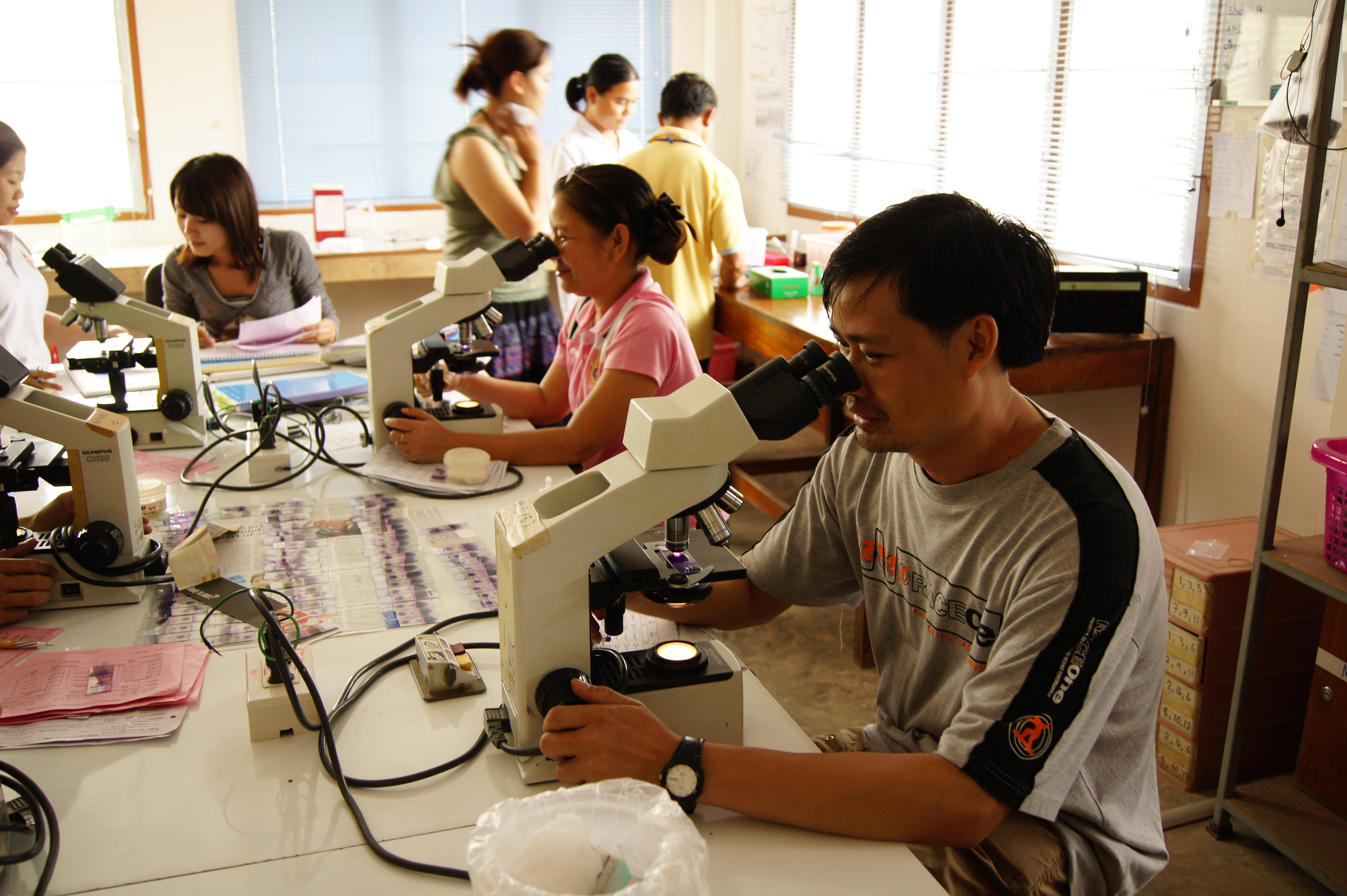A lineage of multidrug resistant P. falciparum malaria has widely spread and is now established in parts of Thailand, Laos and Cambodia, causing high treatment failure rates for the main falciparum malaria medicines, artemisinin combination therapies (ACTs), according to a study published today in The Lancet Infectious Diseases.
The emergence and spread of artemisinin drug resistant P. falciparum lineage represents a serious threat to global malaria control and eradication efforts. The authors warn that malaria parasites resistant to both artemisinin and its widely used partner drug piperaquine are now spreading quickly throughout Cambodia, with fitter multidrug resistant parasites spreading throughout western Cambodia, southern Laos and northeastern Thailand.
'We now see this very successful resistant parasite lineage emerging, outcompeting its peers, and spreading over a wide area. It has also picked up resistance to the partner drug piperaquine, causing high failure rates of the widely used artemisinin combination therapy DHA-piperaquine,' says study lead author Prof. Arjen Dondorp, Head of Malaria and Deputy Head of the Mahidol Oxford Tropical Medicine Research Unit (MORU) in Thailand, Asia. 'We hope this evidence will be used to reemphasize the urgency of malaria elimination in the Asia-region before falciparum malaria becomes close to untreatable.'
Noting that the further spread of these multidrug resistant parasites through India to sub-Saharan Africa would be a global public health disaster, the study authors call for accelerated efforts in the Greater Mekong Sub-region and closer collaboration to monitor any further spread in neighbouring regions.
'We are losing a dangerous race to eliminate artemisinin resistant falciparum malaria before widespread resistance to the partner antimalarials makes that impossible,' said study contributor and Oxford and Mahidol University Prof Sir Nicholas White. 'The consequences of resistance spreading further into India and Africa could be grave if drug resistance is not tackled from a global public health emergency perspective.'
After examining blood spot samples from patients with uncomplicated falciparum malaria from sites in Cambodia, Laos, Thailand and Myanmar, the study team found that PfKelch13 C580Y, a single mutant parasite lineage, has spread across three countries, replacing parasites containing other, less ACT-resistant mutations. Although the C580Y mutation does not confer a higher level of artemisinin resistance than many other PfKelch13 mutations it appears to be fitter, more transmissible and spreading more widely.
'It isn’t that the C580Y mutation itself makes the malaria parasites fitter, it is the other genetic changes that go along with it – hence the critical emphasis on the term “lineage”. This is what makes superbugs – the evolution of multiple factors that make them fitter and more transmissible,' explains Prof. Sir Nicholas White of Mahidol and Oxford Universities. 'The spread and emergence of drug resistant malaria parasites across Asia into Africa has occurred before. Last time it killed millions. We need to work with our policy, research and funding partners to respond to this threat in Asia urgently to avoid history repeating itself.'
Dr Mike Turner, Head of Infection and Immunobiology at Wellcome Trust concurs: 'Already hundreds of thousands of people every year die from drug resistant infections, including malaria. If nothing is done, this will increase to millions of people every year by 2050. The Oxford and Mahidol-led results show a worrying spread of malaria parasite resistance. Data to help track resistance to drugs, such as this study, are vital for improving treatment, diagnosis and prevention of drug resistant infections.'
The study was led by researchers at the Mahidol-Oxford Tropical Medicine Research Unit (MORU), the Mahidol University in Bangkok, Thailand and Oxford University, UK. The study was funded by the Wellcome Trust (UK) and the Bill and Melinda Gates Foundation.
The full paper can be read in The Lancet Infectious Diseases.
